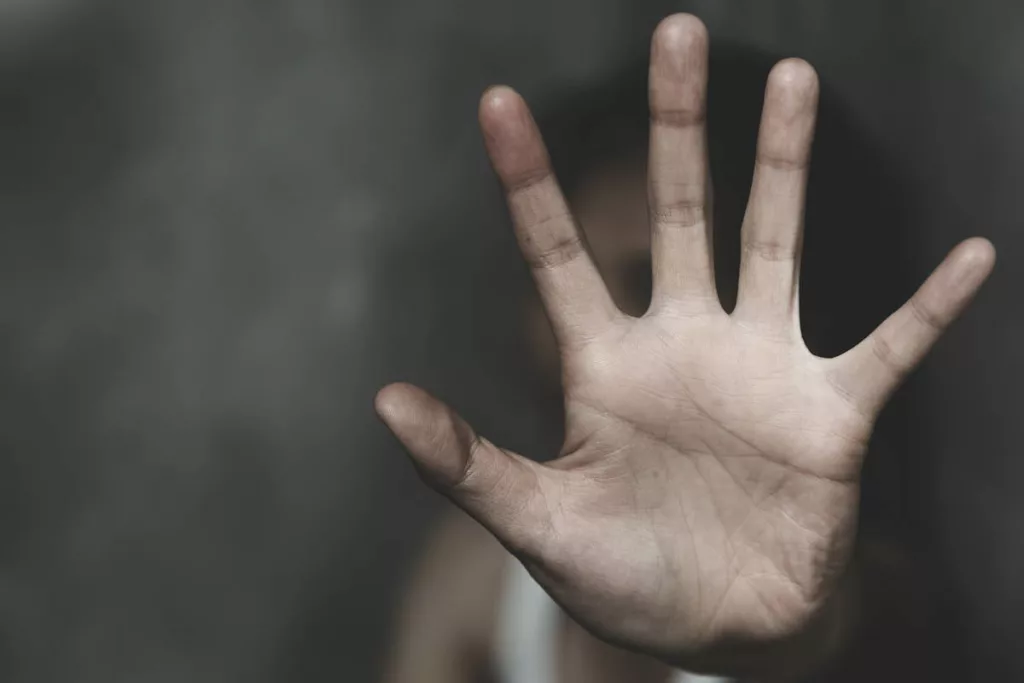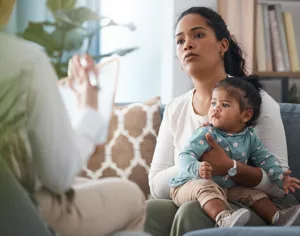What is domestic abuse and what protection is available?
Domestic abuse is a pattern of abusive behaviour between “connected” individuals. Whilst that is often where one partner subjects the other to abusive behaviour, it can also involve children, close family or carers.

Behaviour which is considered to abusive does not necessarily have to be physical. It can include:
- Physical or sexual abuse
- Coercive and controlling behaviour
- Psychological abuse
- Emotional abuse
- Financial abuse
- Harassment or stalking
- Online abuse
What are emergency injunctions?
Emergency Injunctions are legal orders issued by courts to provide immediate protection or relief to individuals facing imminent harm. These injunctions are typically sought in situations where waiting for a regular court hearing could result in significant harm or danger. Emergency injunctions can cover a wide range of issues, including domestic violence, harassment, and honour based abuse. The main purpose of these orders is to offer swift protection to those in vulnerable situations, ensuring their safety and well-being. Protection available includes the following:
Non-Molestation Orders
Under the Family Law Act 1996, these orders prevent ‘associated persons’ from contacting or approaching the applicant and any relevant children. Associated persons can include past partners or spouses, family members, or someone with whom the applicant is or has been cohabiting. For example, in cases of domestic abuse, a Mon-Molestation order can prevent the abuser from intimidating or communicating with the victim.
Occupation Orders
These orders dictate who is allowed to live in the family home or enter the surrounding area. They can be applied for under several circumstances, such as if the victim owns or rents the home intended to be shared with a partner or family member. Occupation orders can be particularly useful in excluding an abuser from the home, thus providing a safe living environment for the victim. An Occupation order may also be used to allow a victim to return to the home if they have left due to fear of violence.
Prohibited Steps Orders
Issued under the Children Act 1989, these orders can prevent a parent or guardian from taking specific actions, such as removing a child from the country, removing a child from your care, or removing them from their school. To apply for a Prohibited Steps Order, you must be either the mother or father of the child in question, or have Parental Responsibility. Grandparents may apply for a Prohibited Steps Order, but they must receive permission from the courts first.
Forced Marriage, Child Marriage and FGM: Practical Signs and Legal Protection
This article looks at some of the practical signs and what steps we can take to protect those who may be at risk.
A blog by Shabina Begum.
Our approach
Goodman Ray Solicitors have a specialist and dedicated team which deals specifically with domestic abuse and all of our solicitors have expertise and training in helping protect individuals from abuse.
Goodman Ray Solicitors have been at the forefront of changes in the law to help protect individuals from abuse, including representing the partner seeking protection from abuse in a landmark case which brought about a change in how the Court considers domestic abuse.
Get in touch with our domestic abuse solicitors in London and Brighton
If you or someone you know is in immediate danger and requires an emergency injunction, do not hesitate to contact Goodman Ray Solicitors. We are dedicated to providing swift and effective legal assistance to ensure your safety. Call us on 020 7608 1227 or email us at mail@goodmanray.com for help in obtaining the necessary emergency injunctions.
Call us
☎️ Call our London office on 020 7608 1227
☎️ Call our Brighton office on 01273 090211
Frequently Asked Questions about Domestic Abuse
Victims of domestic abuse can apply for various protective orders, such as Non-Molestation and Occupation Orders, to ensure their safety. A Non-Molestation order is a legal injunction designed to protect an individual from harassment or abuse by prohibiting another person from certain behaviours, while an Occupation Order regulates who can live in or access a family home following domestic disputes or relationship breakdowns.
Potentially. Legal aid is available to individuals who are unable to afford legal representation in cases involving domestic abuse. This financial assistance can cover legal costs associated with applying for a child arrangements order.
• Eligibility: To qualify for legal aid, applicants must meet certain financial criteria and provide evidence of domestic abuse. This evidence can include police reports, medical records, injunctions, or a letter from a support organisation.
• Applying for Legal Aid: Victims of domestic abuse can apply for legal aid through the Legal Aid Agency. A solicitor can assist in this process, helping to ensure that all necessary documentation and evidence are provided.
• Benefits: Legal aid can cover the costs of legal representation, court fees, and other associated expenses, ensuring that victims of domestic abuse have access to the legal support they need to protect themselves and their children.
Victims of domestic abuse have access to various support services, including the National Domestic Abuse Helpline run by Refuge (0808 2000 247), Women’s Aid for comprehensive support and advice, and charities like Victim Support for emotional and practical assistance.
Yes. The Children Act 1989, which prioritises the welfare of the child, allows for you to take action to protect your children from harm. Under this act, you may obtain a Child Arrangements Order to determine where your child will live and with whom they should have contact. The Domestic Abuse Act 2021 further strengthens protections for victims of abuse, legally recognising that their children are also victims if they see, hear, or experience the effects of abuse.
While the process can vary, in urgent cases an interim order may be granted within a few days, or in extreme cases within hours.
Clients should try their best to bring any photographs or videos to substantiate the abuse they have experienced, along with identification, such as a passport, their contact information, and even a family member for support. Clients are also encouraged to bring a general timeline of events to give the solicitor a better idea of your story.















